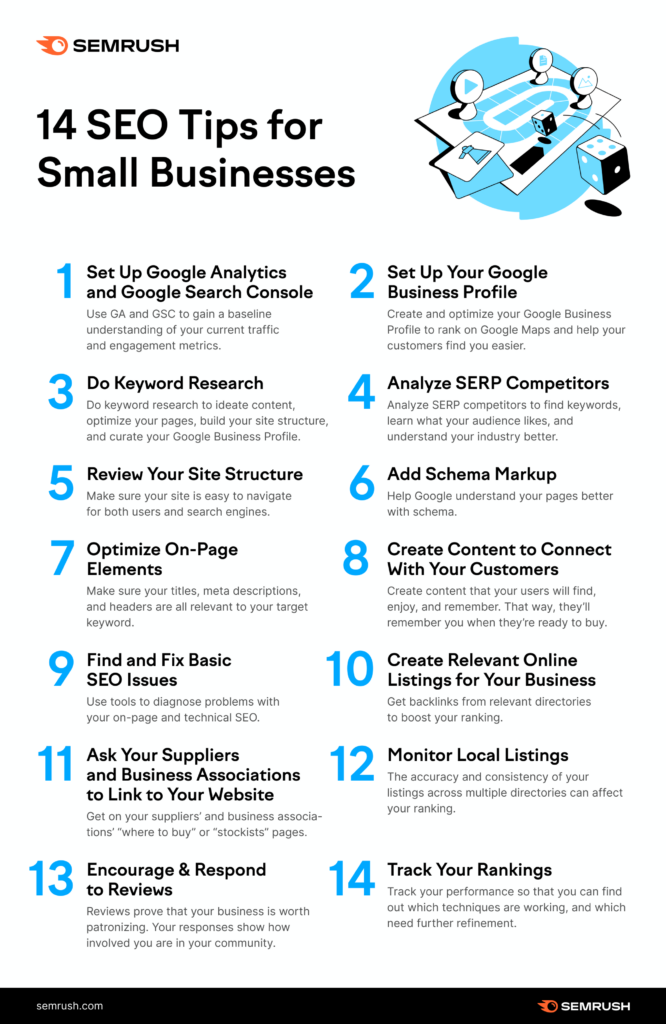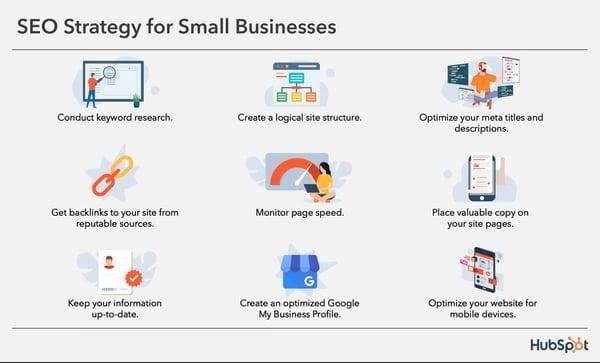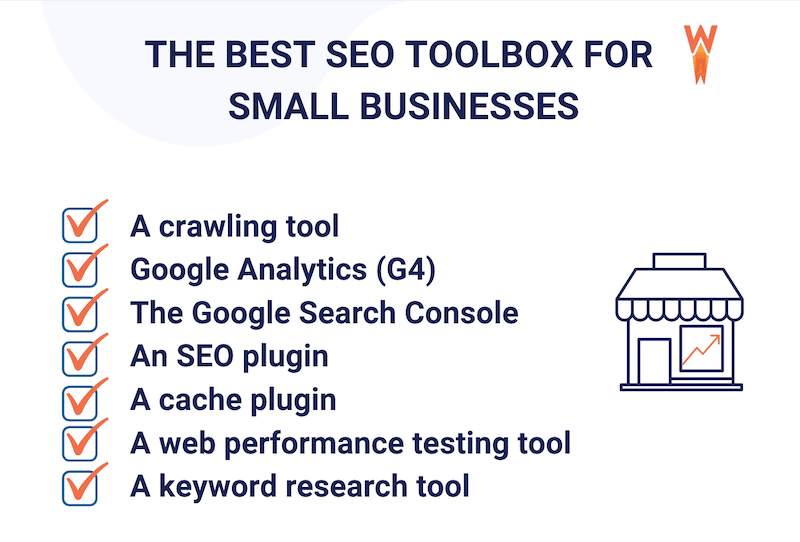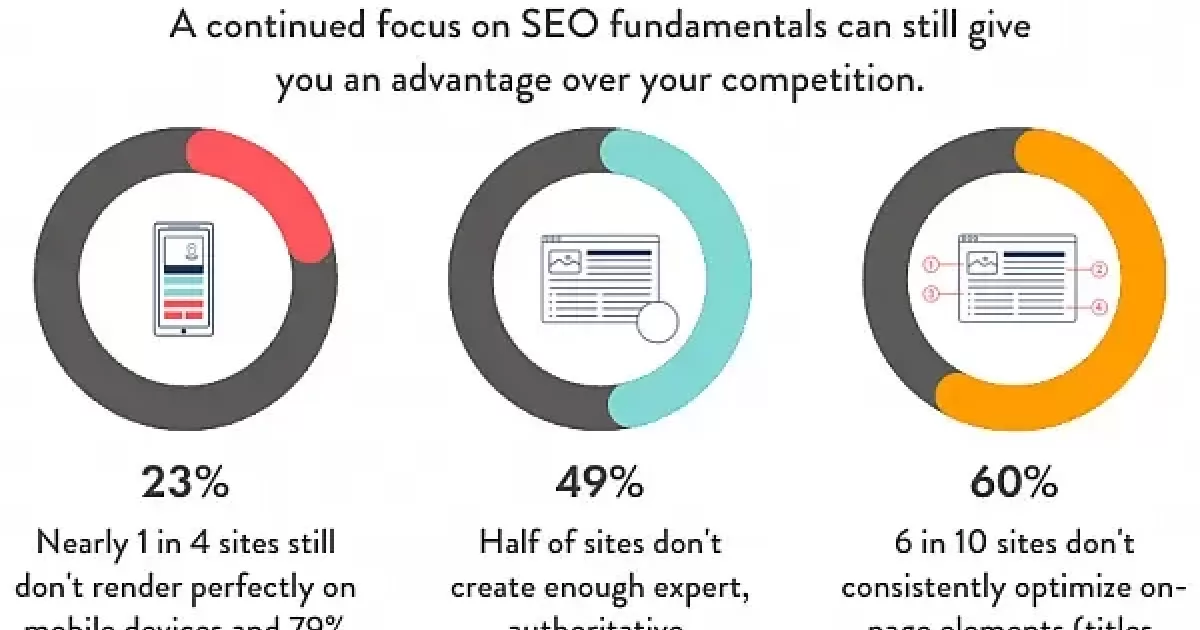Uncover the must-know secrets of SEO for small businesses and watch your website soar to the top of search rankings.

Image courtesy of via DALL-E 3
Table of Contents
Introduction to SEO
SEO, also known as Search Engine Optimization, is like a magic wand that helps small businesses get noticed on the internet. Imagine you are searching for something online, like your favorite video game. You type it in a search engine like Google, and magically, a list of websites appears for you to explore. This magic process is all thanks to SEO, which helps websites show up when people search for something.
What is SEO?
SEO is like a secret code that websites use to tell search engines what they are all about. By using specific words and phrases on their website, businesses help search engines like Google understand what they offer. This way, when someone looks for those products or services, the search engine knows to show that website in the search results.
Why SEO Matters for Small Businesses
For small businesses, SEO is super important because it helps them stand out in a crowd of websites. When people search for things online, they usually only click on the first few websites that show up. By using SEO, small businesses can improve their chances of being one of those top results, getting more visitors to their website and, hopefully, more customers too!
How Search Engines Work
Search engines like Google are magical tools that help us find information on the internet. Have you ever wondered how they work? Let’s take a peek behind the scenes to see how search engines find and show websites like yours.
The Role of Search Engines
Search engines are like super-smart librarians that organize and store information from all the websites on the internet. When you type something into a search bar, the search engine quickly sifts through its vast collection of websites to find the most relevant ones for you.
Crawling and Indexing
Before search engines can show you results, they need to gather information from websites. They do this through a process called crawling, where they follow links from one website to another. After gathering all this data, the search engine stores it in an organized fashion, like putting books on shelves in a library. This is called indexing.
Ranking Results
Once the search engine has crawled and indexed a bunch of websites, it needs to decide which ones are the most useful to show you. To do this, search engines use special algorithms that consider many factors, like how relevant and trustworthy a website is. This helps them figure out which websites should appear at the top of the search results.
Choosing the Right Keywords
Keywords are the specific words or phrases that people type into search engines when looking for information. They are like the key that unlocks the door to your website. Choosing the right keywords is crucial because it helps your website show up when someone searches for those terms.

Image courtesy of bluemoosemedia.com via Google Images
How to Find Keywords
Finding the best keywords for your business is like discovering hidden treasures. You can use tools like Google Keyword Planner or even think about what words your customers might use to search for your products or services. By doing this research, you can uncover the words that will lead more people to your website.
Using Keywords
Once you have your list of keywords, it’s time to sprinkle them throughout your website. Make sure to include them in your website’s content, titles, and meta descriptions. By using these keywords strategically, you’re helping search engines understand what your website is all about and connecting with potential customers.
On-Page Optimization
Meta tags are pieces of code that provide information about a web page to search engines. They are not visible on the actual page but play a crucial role in SEO. Meta tags include a title tag, meta description, and meta keywords. The title tag is what appears as the headline in search engine results, while the meta description gives a brief summary of the page’s content. Using relevant keywords in these tags can help improve your website’s visibility in search results.
Using Headings
Headings, also known as H1, H2, H3 tags, are used to highlight the main sections of your content. Search engines use these headings to understand the structure and hierarchy of your page. It is essential to use relevant keywords in your headings to make it clear to both search engines and visitors what your content is about. By organizing your content with headings, you can improve the readability and SEO of your website.
Quality Content
Creating high-quality content is key to successful SEO. Search engines prioritize websites that offer valuable and engaging content to users. Quality content is not only informative but also well-written, easy to read, and relevant to your target audience. By consistently providing valuable content that addresses the needs of your audience, you can enhance your website’s SEO performance and attract more visitors.
Off-Page Optimization
Backlinks are like recommendations from other websites for your site. They show search engines that your website is trusted and credible. Imagine it as other websites giving you a thumbs up!

Image courtesy of blog.hubspot.com via Google Images
Building Backlinks
To get more backlinks, you can create helpful and interesting content that people want to share. You can also reach out to other websites and ask if they can link to your site. Remember, it’s important to have quality backlinks, not just a lot of them.
Social Media’s Role
Social media is like a big billboard for your website. When you share your website on social media platforms like Facebook, Twitter, or Instagram, more people see it. This can lead to more visitors to your site and more backlinks. So, don’t forget to share your website on social media!
Local SEO
Local SEO is a super cool way for small businesses to attract nearby customers. Think of it as putting a big sign outside your virtual store to let people in your area know you’re there!
What is Local SEO?
Local SEO is all about making sure your business shows up when people search for things in your area. If you have a pizza shop and someone nearby types “best pizza near me” into Google, you want to be the first place they see!
Google My Business
To boost your local SEO game, you can set up a Google My Business profile. It’s like creating a cool online flyer for your business that pops up when people search for you. Make sure to fill in all the details and add some nice pictures, so folks know you’re legit!
Using Maps for SEO
Ever used Google Maps to find your way around? Well, being on those maps can also help your business! When someone looks for your type of business on a map, you want to be right there, ready to welcome them in.
Monitoring and Adjusting SEO
After implementing SEO strategies on your small business website, the work doesn’t stop there. It’s crucial to monitor how well your SEO is performing and make adjustments as needed. This process ensures that your website continues to rank well in search engine results and attract more visitors.

Image courtesy of wp-rocket.me via Google Images
SEO Tools
There are various tools available that can help you monitor the performance of your SEO efforts. Tools like Google Analytics can provide insightful data on your website traffic, user behavior, and keyword rankings. These tools can help you identify what’s working well and what areas need improvement.
Reading SEO Reports
When you use SEO tools to track your website’s performance, you’ll receive reports that can appear overwhelming at first. However, these reports contain valuable information that can guide your SEO strategy. Look for key metrics like website traffic, bounce rates, and keyword rankings to gauge how well your website is doing.
Making Changes
Based on the data you gather from your SEO tools and reports, it’s essential to make adjustments to your SEO strategies. If you notice certain keywords are not performing well, consider changing them. If your website traffic is dropping, try optimizing your content or building more backlinks. By consistently monitoring and adjusting your SEO efforts, you can stay ahead of the competition and improve your website’s visibility.
Common SEO Mistakes to Avoid
Keyword stuffing is when you use too many keywords on your website in an attempt to manipulate search engine rankings. But search engines like Google are smart and can detect this tactic. Using too many keywords can actually hurt your SEO because it makes your content look unnatural and spammy. Instead, focus on using keywords naturally in your content so it reads well for your human visitors.
Duplicate Content
Having the same content on multiple pages of your website may seem like a time-saver, but it can actually harm your SEO efforts. Search engines prefer unique and original content, so having duplications can lead to penalties and lower rankings. Make sure each page on your website offers something unique to visitors to improve your SEO.
Ignoring Mobile Users
In today’s digital age, more and more people are using their smartphones and tablets to browse the internet. If your website doesn’t work well on mobile devices, you could be missing out on a large chunk of potential visitors. Search engines like Google prioritize mobile-friendly websites in their rankings, so it’s crucial to ensure your site is responsive and user-friendly on all devices.
Conclusion
In this guide, we’ve explored the world of SEO (Search Engine Optimization) and why it’s crucial for small businesses to implement these strategies on their websites. By optimizing your online presence, you can improve your visibility on search engines like Google and attract more potential customers to your business.

Image courtesy of www.workshopdigital.com via Google Images
Understanding what SEO is and how search engines work is fundamental. By choosing the right keywords that your target audience uses to search, you can tailor your website content to meet their needs effectively. On-page and off-page optimization techniques, along with local SEO strategies, play a vital role in enhancing your website’s ranking and driving traffic.
Monitoring and adjusting your SEO efforts are key to ensuring long-term success. By using tools to track your performance and making informed changes based on analytics, you can stay ahead of the competition and continue to attract new customers.
Avoiding common SEO mistakes, such as keyword stuffing, duplicate content, and neglecting mobile users, is essential for maintaining a strong online presence. By following best practices and staying up-to-date with the latest trends, you can steer clear of penalties and keep your website in top shape.
As you move forward with implementing SEO strategies on your small business website, remember that consistency and patience are key. Rome wasn’t built in a day, and neither will your online presence be. Keep refining your approach, tracking your progress, and adapting to changes in the digital landscape to achieve sustainable growth and success.
So, what are you waiting for? Start optimizing your website for search engines today and watch your business soar to new heights!
Want to turn these SEO insights into real results? Seorocket is an all-in-one AI SEO solution that uses the power of AI to analyze your competition and craft high-ranking content.
Seorocket offers a suite of powerful tools, including a Keyword Researcher to find the most profitable keywords, an AI Writer to generate unique and Google-friendly content, and an Automatic Publisher to schedule and publish your content directly to your website. Plus, you’ll get real-time performance tracking so you can see exactly what’s working and make adjustments as needed.
Stop just reading about SEO – take action with Seorocket and skyrocket your search rankings today. Sign up for a free trial and see the difference Seorocket can make for your website!
FAQs on SEO for Small Businesses
What is SEO?
SEO, or Search Engine Optimization, is a way to improve your website’s visibility on search engines like Google. By using SEO techniques, you can increase the chances of your website appearing higher in search results when people look for products or services related to your business.
Why SEO Matters for Small Businesses
SEO is crucial for small businesses because it helps them stand out online. When your website ranks higher in search results, more people are likely to visit it. This can lead to increased traffic, more customers, and ultimately, more success for your business.







